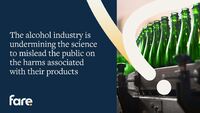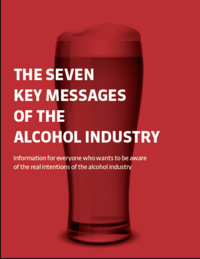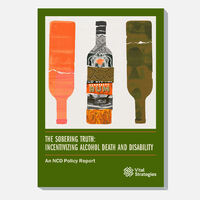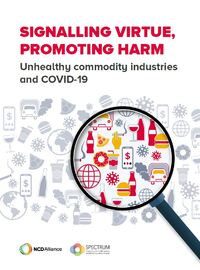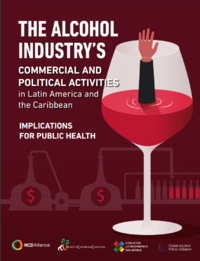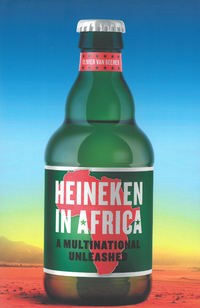Alcohol industry and related vested interest
Global alcohol producers and their global brands of beer, spirits and wine are expanding to every corner of the world, searching for growth in emerging markets that are key to maximizing future profits. The enormous market power exercised by those global companies easily translates into political power on the state and global levels. That power may be a formidable force impeding progress in the fight to reduce and prevent NCD. As WHO Director General Dr. Margaret Chan said at the Health for All Conference in Helsinki in 2013, “Efforts to prevent non-communicable diseases go against the business interests of powerful economic operators. In my view, this is one of the biggest challenges facing health promotion.”
And an analysis of whether they have succeeded or not
Report on efforts from alcohol companies to influence WHO alcohol action plan
Alcohol companies and their lobby groups are systematically working to undermine and water down global alcohol policies that would reduce the harms associated with their products, according to new report.
Revised edition: The seven key messages of the alcohol industry
11 years after the first edition European Centre for Monitoring Alcohol Marketing (EUCAM) has published a revised edition of its analysis of the key mesages of the alcohol industry.
New publication:
The Sobering Truth: Incentivizing Alcohol Death and Disability
Vital Strategies has published a new report on how governments, despite the health burden, are subsidizing the alcohol industry. Billions of dollars are given to the alcohol industry every year through tax breaks, marketing subsidies and other incentives, particularly in low-and middle-income countries.
New report exposes unhealthy industry responses to COVID-19
The report, ‘Signalling Virtue, Promoting Harm’ released recently provides ample examples of how unhealthy commodity industries, alcohol included, have leveraged COVID-19 for commercial gain.
Opinion:
Covid-19 shows us why certain investments of the Norwegian oil fund is unethical
The Covid-19 pandemic shows us why the Norwegian Government Pension Fund Global (the oil fund) must stop investing in alcohol. In South Africa the strict alcohol regulations during the pandemic have led to startling results.
Report on the industry’s commercial and political activities in the region
Alcohol industry influence exposed in Latin America and the Caribbean
In recognition of the fact that in Latin America and the Caribbean the harmful use of alcohol is one of the leading risk factors for death and disability, the report acknowledges that "alcohol does not receive due attention and action" (foreword). The report is a contribution to bringing about this due attention by pointing to the role of the alcohol industry in influencing regional policies that affect public health and social welfare.
SAAPA applauds WHO position on no industry collaboration
SAAPA warmly welcomes the recent news about the World Health Organization and its position on alcohol industry involvement in the process of developing alcohol policies: WHO will not consult with or enter into partnerships with the alcohol industry
New book reveals a series of unethical business practices by Heineken in Africa
Collaboration with dictators and an alleged war criminal. Tax avoidance in African countries. High level corruption. Exploitation of weak political systems. High profits on beer sales. The use of “beer girls” to maximize sales.
Advertising regulations must focus more on alcohol promotion through social media
Regulations on alcohol advertising must to a larger extent focus on exposures in social media, as these media play an increasingly larger role, both in marketing strategies and in young peoples’ lives. This challenge comes from a newly published report in the UK.
New book documents Heineken marketing malpractices:
Beer girls are used to promote beer drinking in Africa
Heineken uses so-called beer girls to promote the sales of its beer in ten African countries. A number of them are harassed during their work, have to sleep with managers and prostitute themselves to customers. This is documented in a newly published book by the Dutch journalist Olivier van Beemen.
